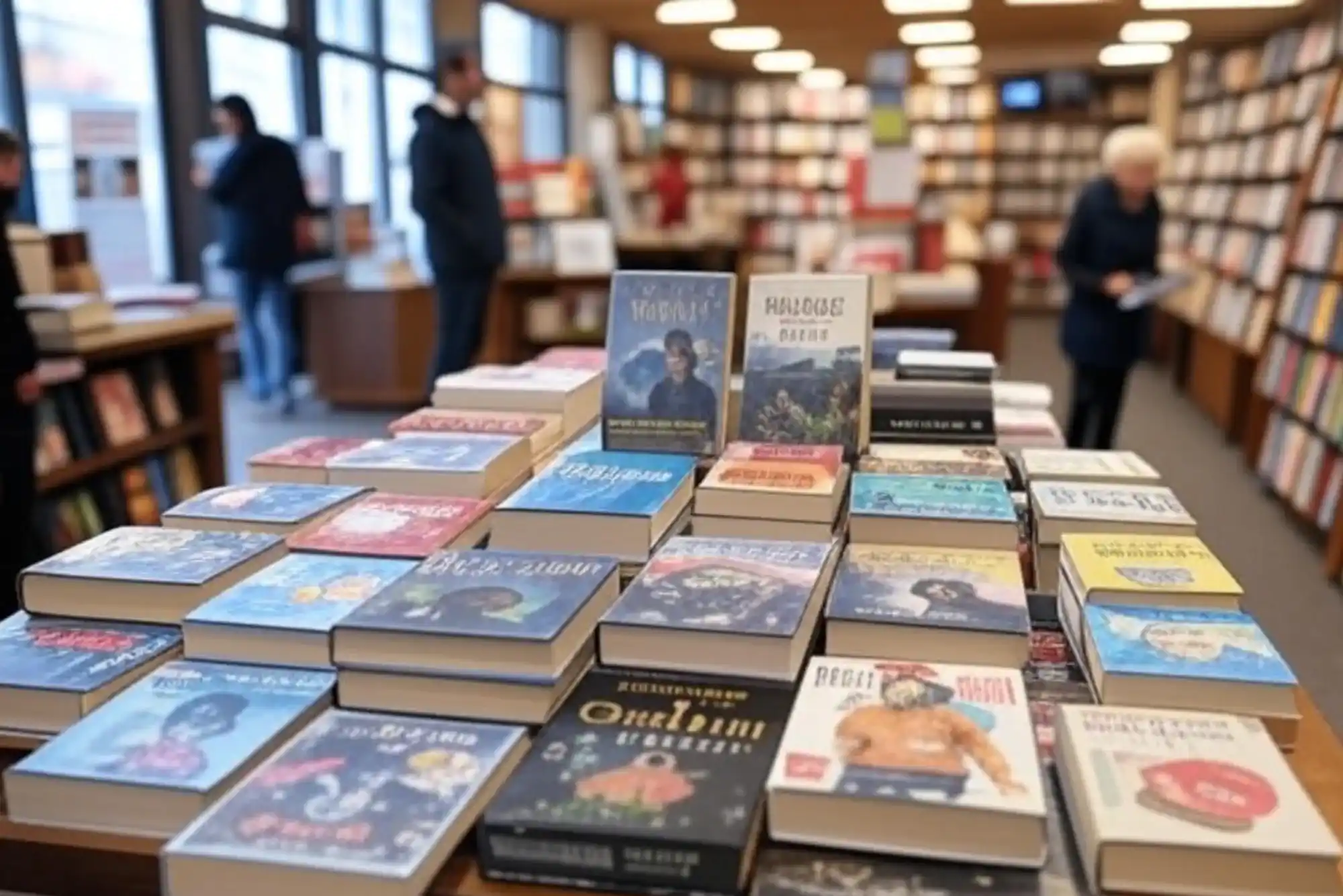In the ever-evolving world of fiction, psychological fiction and psychological thrillers continue to carve a strong niche among readers in 2025. These genres, known for their ability to delve deep into the human psyche, have always fascinated readers who crave layered characters, unreliable narrators, and stories that blur the line between reality and illusion.
What makes 2025 particularly exciting for fans of this genre is the rise of fresh voices alongside seasoned authors returning with darker, sharper narratives. Whether it’s a slow-burning mind game or a fast-paced thriller with shocking revelations, the current literary landscape is rich with stories that challenge perceptions and invite emotional introspection.
Let’s dive into the rising stars and established names redefining psychological fiction this year, and examine why these books are resonating with audiences across the globe.
The Psychological Fiction Boom: Why Now?
There’s something about the modern world that makes psychological fiction feel more relevant than ever. In an age where anxiety, isolation, and self-identity are constant undercurrents of daily life, books that explore inner turmoil feel like mirrors reflecting back our collective concerns.
The year 2025 has seen a distinct shift in how these themes are approached. Authors are not only crafting twisty narratives; they’re diving into emotional truths, trauma responses, memory distortion, and social manipulation with precision. These aren’t just thrillers for entertainment — they’re narratives that evoke empathy, discomfort, and sometimes, self-discovery.
What’s particularly noticeable this year is the blending of literary and psychological fiction — beautifully written novels that manage to keep the tension high while exploring complex emotional terrain. Readers are no longer satisfied with superficial shock; they want depth, and the best books of 2025 are delivering exactly that.
Standout Titles Making Waves in 2025
Among the many books published so far, a few have stirred considerable buzz — not just for their clever plots but for how they emotionally entangle readers.
One such title is The Mirror’s Lie by Ava Sinclair, a haunting exploration of identity, memory, and maternal obsession. The protagonist, a high-achieving therapist, begins to doubt her own memories after the sudden reappearance of her estranged mother, setting off a psychological spiral that questions the reliability of perception itself. The book resonates because it taps into the fear of losing one’s mind — a theme that hits especially hard in the age of over-information and mental burnout.
Another major player this year is Between the Rooms by Jonas Reed, a debut author whose background in neuroscience gives his writing an eerie authenticity. Reed weaves the story of a man who wakes up each morning in a different room of a seemingly endless mansion, each space evoking fragments of forgotten trauma. The suspense isn’t built on physical danger but on emotional collapse, making it one of the most talked-about psychological thrillers in recent memory.
Then there’s Silent Agreement by Harper Vale, which may be this year’s most politically charged entry in the genre. Set in a near-future society where emotional honesty is legislated, the book unravels the story of a woman sentenced to a rehabilitation facility for being emotionally ‘opaque.’ The psychological warfare she endures — both from others and herself — is chilling, and the book’s social commentary strikes a nerve in a world obsessed with authenticity.
Readers Want Psychological Depth Over Cheap Thrills
What’s changed in 2025 isn’t the structure of the psychological thriller — it’s the emotional engagement. Readers are gravitating toward stories where tension comes from internal conflict as much as external danger. Gone are the days when a twist ending alone was enough to satisfy. Now, audiences want a trail of emotional breadcrumbs that, when followed, lead to real insight or heartbreak.
Books like The House of Me by Lidia Morton exemplify this. The narrative follows a woman undergoing intense therapy for dissociative identity disorder, blending real psychological theory with a mystery about her own childhood. It’s harrowing, yes, but also deeply respectful of mental health realities — a trait readers now look for when consuming fiction in this genre.
The appetite for slow-burn tension has also grown. Whispers in the Fog by Tamiko Lane takes nearly 100 pages before the reader even senses danger, but when it hits, the emotional impact is enormous. The novel’s genius lies in how it builds a relationship between the reader and the protagonist, allowing subtle shifts in behavior and thought to create unease. It’s a masterclass in how psychological fiction can feel more intense than traditional action-packed thrillers.
The Return of the Unreliable Narrator
No discussion about psychological fiction would be complete without addressing the role of the unreliable narrator — a literary device that remains hugely popular in 2025. But today’s authors are using it with more sophistication.
Instead of just springing a shocking reveal about the narrator’s deceit, these stories now invite readers to live inside the character’s uncertainty. This approach builds empathy even as it unsettles.
Take Glass Skin by Emilia Grange, for instance. The protagonist, a woman recovering from trauma, keeps a detailed journal — but discrepancies start appearing between her entries and the reality described by those around her. The book never confirms what’s true, and instead forces readers to make their own conclusions, heightening the psychological tension without relying on cliches.
Similarly, Static in the Garden by Noel Keene turns memory itself into a narrative weapon. Told through fragments of interviews, journal pages, and police reports, it creates a patchwork of truths that never fully align — a puzzle that reflects the fractured mind at the heart of the story.
Genre Crossovers Expanding Horizons
Another reason psychological thrillers are gaining more visibility in 2025 is their increasing fusion with other genres. We’re seeing psychological fiction intersect with science fiction, romance, gothic horror, and even historical drama, creating stories that are rich and multidimensional.
For example, Echoes of Iron by Dalia Winter is set in post-WWI Germany and follows a former nurse suffering from what today would be called PTSD. Her hallucinations, thought to be madness, begin to align with unsolved murders around her hospital. The book blends historical detail with psychological suspense in a way that feels both grounded and surreal.
In a similar vein, The Memory Sculptor by S.J. Kwon mixes speculative fiction with deep psychological themes. The premise revolves around a technology that can erase painful memories, but when a woman discovers gaps in her emotional timeline, she begins to suspect something sinister. Kwon’s use of sci-fi tropes enhances, rather than overshadows, the emotional core — making it a standout in both genres.
The Power of Psychological Fiction in 2025
What unites all of these rising titles is a commitment to emotional authenticity and narrative complexity. Psychological fiction in 2025 is not just about thrilling twists; it’s about exploring the messiness of human behavior, the fragility of memory, and the moral ambiguity that defines real life.
For readers who crave stories that linger long after the final page, this genre offers a uniquely immersive experience. You’re not just observing characters — you’re invited into their anxieties, forced to question your own biases, and left to grapple with ambiguous truths.
The psychological thriller of today is not just entertainment; it’s a confrontation with self. And in a world increasingly shaped by emotional and psychological pressure, these books feel more necessary than ever.
As we move deeper into 2025, one thing is clear: psychological fiction is not just a genre — it’s a reflection of our times. And for those willing to dive into the darker corridors of the mind, there’s never been a better time to read.









